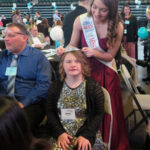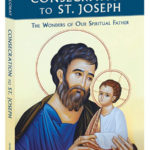As our diocese embarks on a yearlong journey to grow as a more welcoming Church that engenders a sense of belonging, we need to remember the married couples among us with spouses who do not share the same faith. How can we help them to feel welcome and to have a sense of belonging in our parishes, schools and other entities without the expectation that they must convert?
Marriage trends in the diocese show that one-third to one-half of all couples marrying in the Catholic Church have spouses of another faith or of no faith. In 2022, for example, 66% of couples who married in the Catholic Church in our diocese were both Catholic (159 out of 241 couples). A decade earlier, in 2012, 58% of couples marrying in the Catholic Church in our diocese were both Catholic (260 of 447 couples).
Whether spouses of another faith or of no faith tradition feel welcome and have a sense of belonging in the Church depends on many factors. These include family dynamics, faith background, as well as the clergy’s and parishioners’ relationship with the couple and their family, says Diocesan Marriage and Family Life Coordinator Marianne Agnoli.
For some, the Mass may seem intimidating. “They don’t know the prayers, the Nicene Creed, the hymns, the postures. There’s a lot to our Mass,” said one Catholic mom in our diocese with adult children married to spouses of another faith tradition. One Protestant husband in our diocese said, “It’s a little irritating to not be permitted to receive Communion, but the people are nice and welcoming. Most people assume I’m Catholic until it’s time for Communion!”
“Even if both spouses are Christian with similar beliefs, sometimes the details can make a big difference, with the potential to drive a wedge between them,” writes Simcha Fisher in an article appearing in the May 2023 issue of America. Yet, she reported in the same article, an Episcopal priest married to a Catholic attorney “said a lot of spiritual practices are more compatible in family life than some of the denominational differences would have us believe.”
The task ahead is challenging but doable. Agnoli will be a panelist at the diocesan Synodal Summit on June 17, which focuses on welcoming and belonging. Part of her presentation will focus on reaching out to couples who may not feel welcome in the Church and parish activities particularly because one of them is not Catholic.
She plans to promote the Alpha Marriage Course, an internationally recognized program to help married couples invest in their relationship and build strong marriages. The diocese recently completed a successful pilot project of the Marriage Course (see story on Page 1). The program shares information in a way that allows a spouse from a different faith or of no faith tradition to feel welcome and to participate fully in the course, Agnoli said. “The Marriage Course serves not only as an excellent marriage enrichment resource for parishes, but offers an opportunity for more intentional inclusion and evangelization as well.”
From his experience serving Jesus Christ, Prince of Peace Parish in Clinton, Deacon Jeff Schuetzle observes that welcoming mixed-faith couples and engendering a sense of belonging begins with marriage preparation and continues throughout their marriage.
He suggests parish leaders do the following:
- Pair a mixed-faith sponsor couple with a mixed-faith couple preparing for marriage. The sponsor couple can share blessings and obstacles they have experienced.
- Invite questions and provide answers. Say to the partner of another faith tradition, “I want you to know what we believe and I want to know what you believe.” Among the questions that need to be addressed, ask, “How comfortable do you feel about raising your future children in the Catholic Church?”
- Prepare staff/volunteers to respond pastorally to the needs and questions of parents who are not Catholic as their children prepare to receive sacraments in the Catholic Church. One mom in the America article agreed to raise her kids Catholic but “she underestimated how much she would have to give up, or how much it would hurt,” Fisher wrote.
- Plan ahead. Figure out who among the staff and volunteers can deal pastorally with questions that arise throughout the marriage of couples of mixed faiths. Deacon Schuetzle knows a couple who did not marry in the Catholic Church but are eager to participate in the sacramental life of the parish. He encourages other ministers in a similar situation to share the Church’s teaching while offering reassurance about the process a couple needs to complete to participate in the sacraments.
All of us — clergy, parishioners, principals and small faith groups — should embrace the opportunity to help couples in mixed-faith marriages to feel welcome in our diocesan Church and to engender a sense of belonging. Our families may be among them. The Protestant husband mentioned earlier in this editorial offers this advice: “I appreciate people who acknowledge me, are willing to strike up a conversation, but without being put on the spot.”
Barb Arland-Fye, Editor
Arland-fye@davenportdiocese.org












